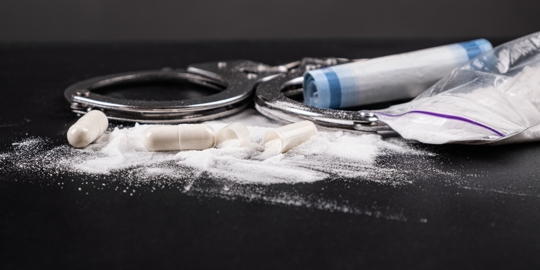In Florida, to be convicted of drug possession, the State has the burden of proving beyond a reasonable doubt that the defendant was in “actual or constructive” possession of the alleged substance. [1]
Actual possession refers to having the drug on one’s own person, in their belongings, or in some instances, within their ready reach. For instance, actual possession would arise if the police found drugs in one's pocket. [2]
Constructive possession refers to having control over an illegal substance, even if the substance is not physically in one's immediate possession. To establish constructive possession, the State is required to demonstrate that the defendant had knowledge of the presence of the substance. Additionally, the accused must possess the ability to exercise control over illegal substances. It is important to note that knowledge of the illegal substance can be used as an affirmative defense in such cases. [3]
According to Florida statute 893.101, it is not required to prove "knowledge of the illicit nature of a controlled substance" as an element of any offense under chapter 893.[4] There is a permissive presumption that the defendant knows. However, a defendant can use their lack of knowledge of the substance's illicit nature as an affirmative defense. If the defendant asserts this defense, they are not required to prove their lack of knowledge. Instead, it is the State's burden to prove beyond a reasonable doubt that the defendant knew of the substance's illicit nature.
Mere proximity to the drugs is not enough for the State to obtain a valid conviction for possession. As an example, when a defendant was found standing just one foot away from a matchbook containing 19 packets of heroin, the evidence was deemed insufficient to support a conviction based on constructive possession.[5]
Furthermore, the State may be unable to establish constructive possession due to the public nature of the incident. In one particular case, the Defendant was discovered sitting 15 feet away from a bag containing heroin. However, the conviction could not be upheld because the arrest took place in a public park where other individuals were present. Consequently, there was insufficient evidence to solely attribute the possession to the Defendant.[6]
In Florida, the consequences for drug possession can vary depending on factors such as the type and quantity of the drug, any previous convictions, and other significant circumstances related to the possession. Drug possession charges are categorized as either misdemeanors or felonies. The penalties may include imprisonment, probation, community service, and substantial financial penalties. In some cases, individuals may be eligible for drug treatment programs.
It is important to be aware that both misdemeanor and felony drug possession charges can be challenged and potentially result in favorable outcomes. However, due to the seriousness of the charges and the legal complexities involved, it is highly recommended to seek the guidance of an experienced criminal defense attorney.
If you or a loved are need a criminal defense attorney in Naples, Florida, then The Law Offices of Cavanaugh & Cavanaugh are the attorneys for you. Call us today or reach out to us online for a free consultation.
[1] Fla. Stat. Ann. § 893.101
[2] Mitchell v. State, 958 So. 2d 496, 498 (Fla. 4th DCA 2007)
[3] Id.
[4] Fla. Stat. Ann, § 893.101
[5] Agee v. State, 522 So. 2d 1044 (Fla. 2nd DCA 1988)
[6] Tanksley v. State, 332 So. 2d 76 (Fla. 2nd DCA 1976)

